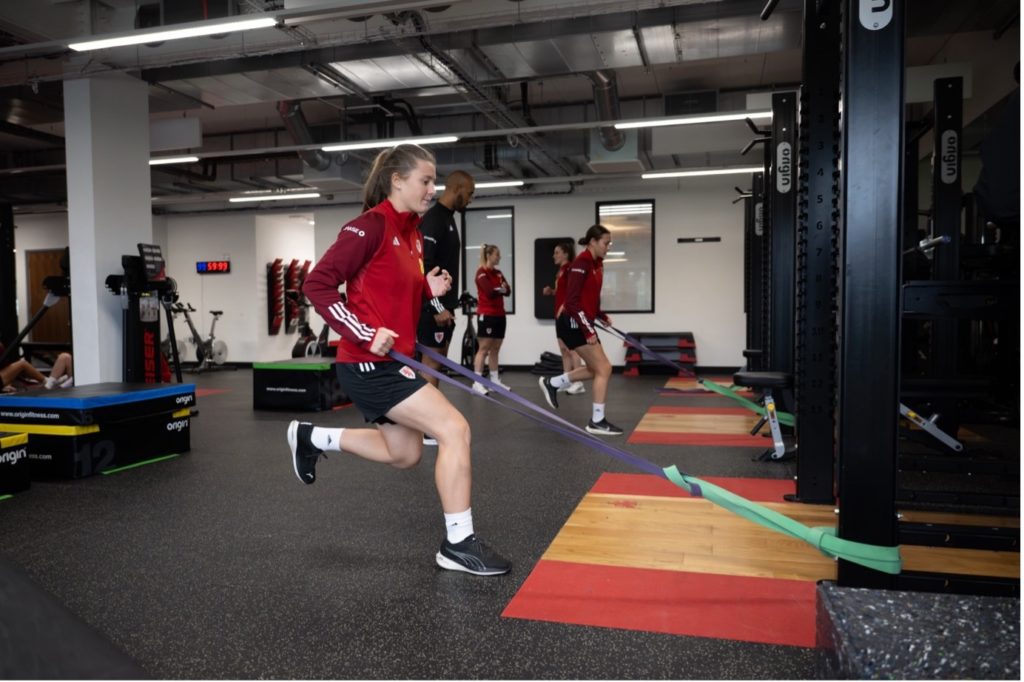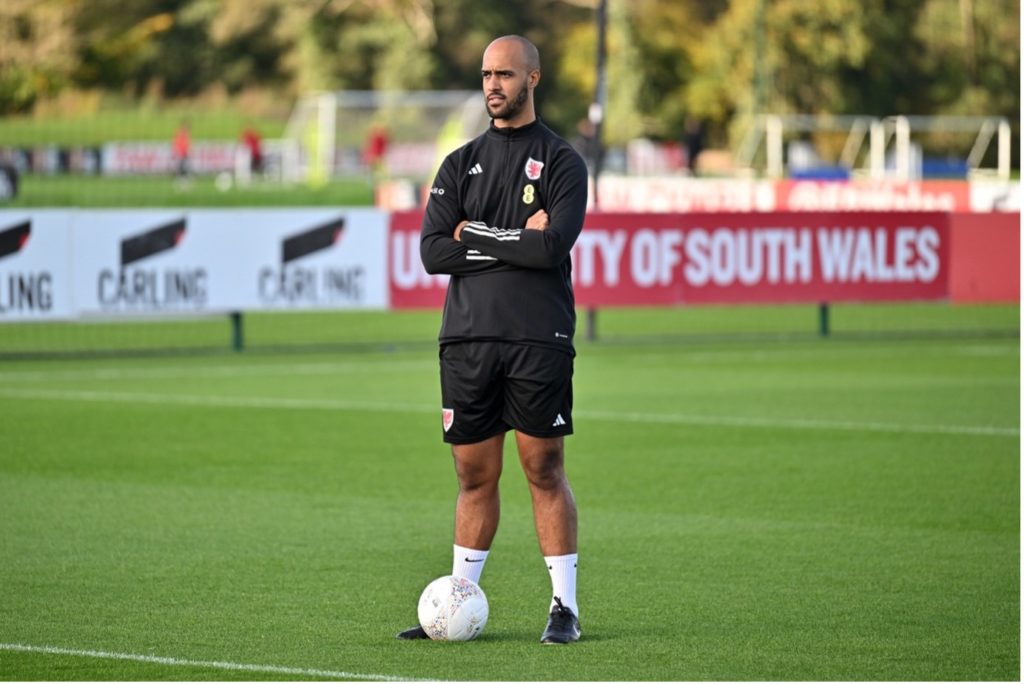By Dan Lothian

Image Credit: Ashley Crowden
Supporting the Wales senior women’s football team in their recent Euro qualification games against Slovakia was an exciting and challenging experience. As a sport scientist working alongside the women’s senior physical performance coach Dan Gordon, our goal was clear: to prepare every player to perform at their best across the two games, ensuring they were physically ready and fully supported through all aspects of conditioning, nutrition, and recovery.
The 9-day camp was dynamic, with players arriving in varying states of readiness. Some had been playing weekly, while others had just returned from injury, having missed weeks of match exposure. With this diversity in training loads, we began collecting data pre-camp to understand each player’s current condition and also used physical data which had been collected on previous camps. From this information, we identified key areas for improvement and developed individualised preparation plans tailored to each athlete’s current needs. These plans included exercises to improve both eccentric and concentric strength and power, and also additional conditioning to maximise aerobic capacity and high-speed exposure.

Image Credit: Ashley Crowden
Alongside physical training, supplementation and nutrition were essential components of our support. With two important games scheduled over nine days, optimal nutrition was necessary for maintaining energy, recovery, and performance levels. We focused on personalised supplementation and travelled with a performance chef. We also had a performance nutritionist on camp, using strategies designed to help players manage fatigue and maintain endurance over the long camp window. Bespoke nutritional practises ensured that each player’s dietary intake supported muscle recovery and immune health, especially given the intensity of back-to-back matches and travel.
Recovery protocols were another crucial focus during this camp. The physical demands of international play and the toll of travel meant that structured recovery sessions were non-negotiable. We implemented individualised recovery routines, with a ‘menu’ of options for players to select, including guided mobility, foam rolling, cryotherapy, ice-baths, contrast bathing and more. These methods helped mitigate muscle soreness and kept the athletes refreshed and ready to perform for each match. There was also access to soft-tissue therapy, a chiropractor and physiotherapy treatments. Sleep quality was another area we monitored closely, as quality rest is foundational to effective recovery.
This intensive approach paid off, as Wales secured victory across the two fixtures, an accomplishment that is a testament to the players’ resilience and adaptability. Our role as sport scientists was to support the athletes in maximising their performance potential, and witnessing their success was extremely rewarding. Now, with the final playoff against Ireland scheduled for the end of November, there’s a heightened sense of desire within the team. The stakes are high, as a win will secure a spot in the Womens Euros 2025 in Switzerland, and there is a focus now to keep the squad in peak condition.
Working with the Wales women’s team has been a profound reminder of the impact that tailored, science-driven support can have on athletic performance. Experiences like this allow me to stay connected to the latest practices in sport science, giving me firsthand insights into the games evolving demands and strategies which is invaluable in my role at the University of Birmingham, where I supervise applied placements and support students through real-world scenarios.

Image Credit: Ashley Crowden
With the upcoming playoff final, the support staff at Wales are ready to continue our commitment to ensuring the team’s health and readiness, and we’re hopeful for another victorious outcome as we head toward the Euros.

D.T.Lothian@bham.ac.uk
